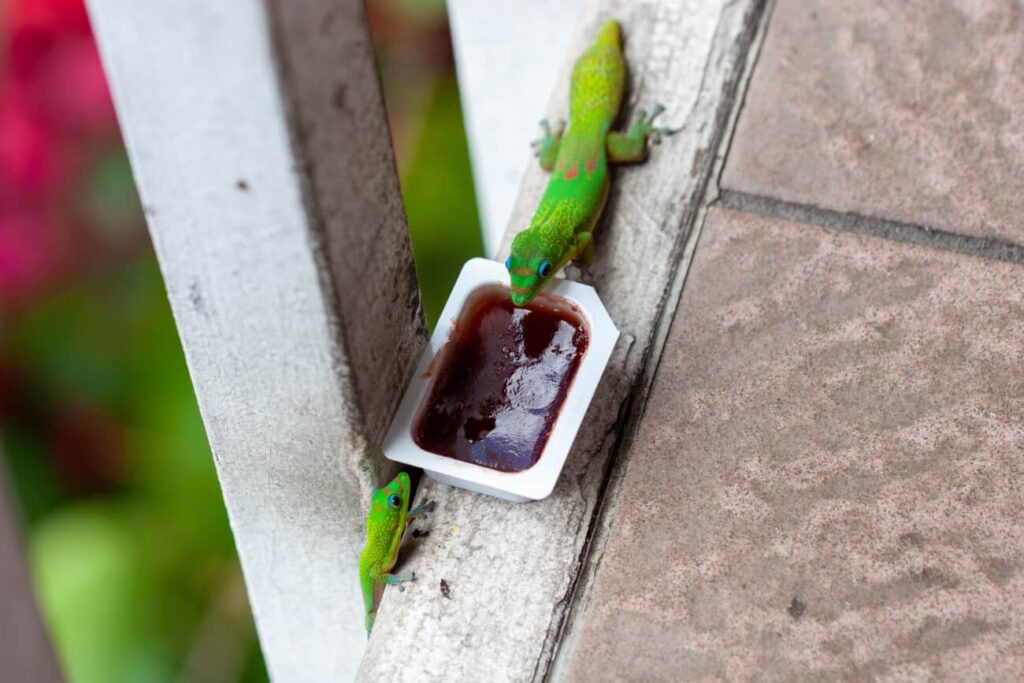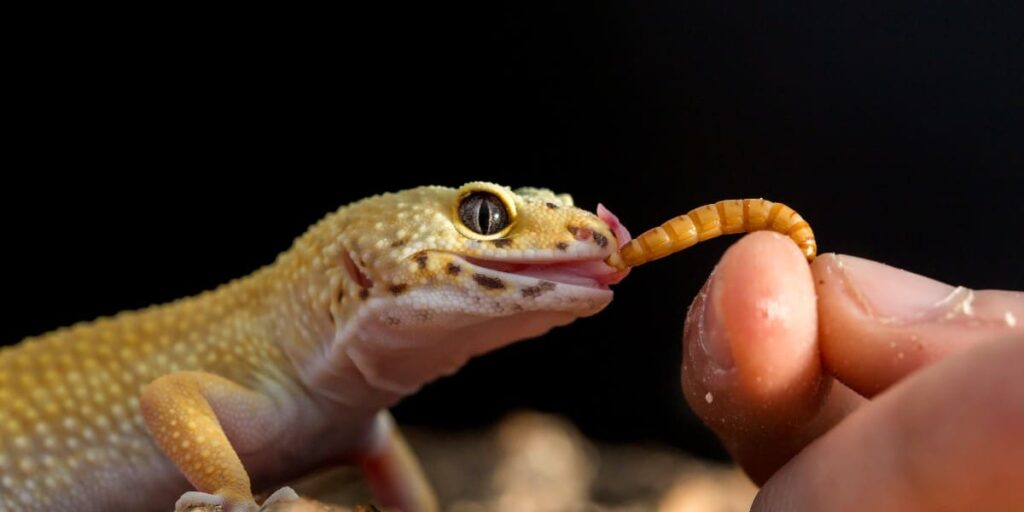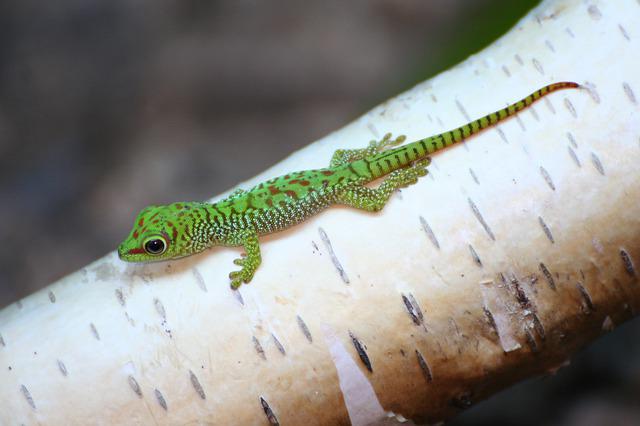Geckos are one of the most popular lizards to keep as pets since they are smaller in size and in the scheme of things, relatively easy to care for. However, a lot of pet owners are tempted to give their gecko human food – but is this a wise idea?
Geckos need to follow a strict diet that mimics that of their diet in the wild as closely as possible. They do not eat fruits or vegetables and it is not a good idea to offer them scraps of human food – no matter how tempting it may be.
In this post, we are going to be looking at whether geckos can eat human food and why this is. We will also be detailing the most important parts of the gecko’s diet and giving you some ideas for treats to give your pet a little bit of variety.
Can Geckos Eat Human Food?
Geckos mostly thrive on a diet of insects and worms when they are in the wild and even those bred in captivity will still have the same dietary requirements. For this reason, you should always make sure that you do not feed any human food to your gecko.
It’s hard, you’re enjoying a meal with your friendly gecko sitting on your shoulder looking longingly at your leftovers – surely a few mouthfuls won’t hurt?
The problem is that if you allow your gecko to eat human food, he could develop weight or health complications owing to the levels of fat and salt within our diet. Whilst these are good for us (in moderation), they may not be as beneficial or nutritious to a gecko.
Some pet parents may think that a few scraps here or a tiny helping there won’t be a problem but if you get into the habit of doing this, you will be supplying your pet with a lot more unhealthy foods than you might imagine.
Furthermore, if your gecko becomes accustomed to being fed from your plate, this could be a tricky habit to break. It is important to remember that animals are intelligent and will quickly fall into a routine.

What Do Geckos Eat In The Wild?
Geckos are native to parts of Asia; places like India, Iraq, and Pakistan to name a few places. Here, they have access to a wide range of foods and their natural diet is quite varied.
Whilst your gecko may look harmless, to wild prey, he is quite the threat and these lizards will largely consume anything that they can catch. This often includes small insects and invertebrates but it is not unheard of for geckos to catch and feed on smaller lizards including baby leopard geckos!
In addition to this, if size allows, a wild gecko may prey on small rodents – when we said they will eat anything they can catch; we meant it!
What Can I Feed My Gecko?
When you take on any pet, it is vital that you provide them with a balanced, healthy, and nutritious diet, and depending on the animal, this might vary greatly.
In the case of the gecko, you must try to offer a range of foods that are similar to what he might eat in the wild.
Pet stores are a great place to start since they offer a wide range of suitable foods for this type of pet. In the main, gecko owners will usually provide their pet with crickets and mealworms, however, there are many other insects that you could try if you wanted to mix up his diet and keep him from getting bored of eating the same foods.
These might include:
- Waxworms
- Cockroaches
- Sow bugs
- Beetles
- Silkworms
- Butterworms
It is important to keep in mind that some types of worms such as wax worms and also super worms have a higher fat content so should be used as a treat rather than a staple part of the gecko’s diet.
If you do not like the idea of having to continually visit the pet store, it is entirely possible to breed your own crickets, worms, and roaches. Not only will this save you time and money but you can feel confident that you know what the insects have been eating.
Many people make the mistake of purchasing worms from fishing bait suppliers and whilst this won’t be a disaster for your gecko, these worms won’t have been reared for pet consumption.
If you raise your own insects, you should be sure to feed them plenty of fresh fruits and vegetables before offering them to your gecko. This diet should also include grains and be given to the insects for at least 24 hours.

It is also worth keeping in mind that since lizards are natural predators, they will likely only be interested in live prey. If you have never dealt with this before, it can feel a little intimidating but it is best for your pet and something that you will get used to.
If you absolutely cannot feed your lizard live food, there is a gel diet called Repashy which will contain all the vital nutrients your pet needs. However, some geckos will not take to this and it may be that you have to accept that live food is the only way.
Foods To Avoid Giving To Your Gecko
As with human foods, there are some things that you should not feed your gecko.
Most experts would agree that offering pinkies – baby mice, is not ideal for this type of lizard as it could cause some digestive upset. This is a common mistake since some larger reptile species in captivity would feed on these.
Additionally, you should avoid offering your pet anything that you have caught outside. Foods for your pet should always have been bred by either yourself or a supplier. This is because wild-caught prey may contain bacteria or diseases that could upset your gecko’s digestive system.
While they may catch prey in the wild, domesticated animals may not have the right level of resistance to these bacteria.
Conclusion
Geckos are a common household pet but they do require a very specific diet. Whilst it may be tempting to offer your pet scraps from your own plate, this may not be wise and could cause unintended health problems.
You should provide your gecko with a diet that is similar to the one he would have in the wild and this might include things such as crickets, mealworms, and cockroaches.
- Do Black Caiman Live in Groups? Exploring the Social Behavior of These Large Reptiles
- Do Black Caiman Have Predators? Exploring the Threats to This Amazonian Reptile
- Do Black Caiman Eat Toucans? Exploring the Diet of Black Caimans in the Wild
- Do Black Caiman Eat Sloths? The Truth About the Diet of Black Caiman
- Can a Black Caiman Kill a Human? Exploring the Predator’s Potentially Deadly Bite




